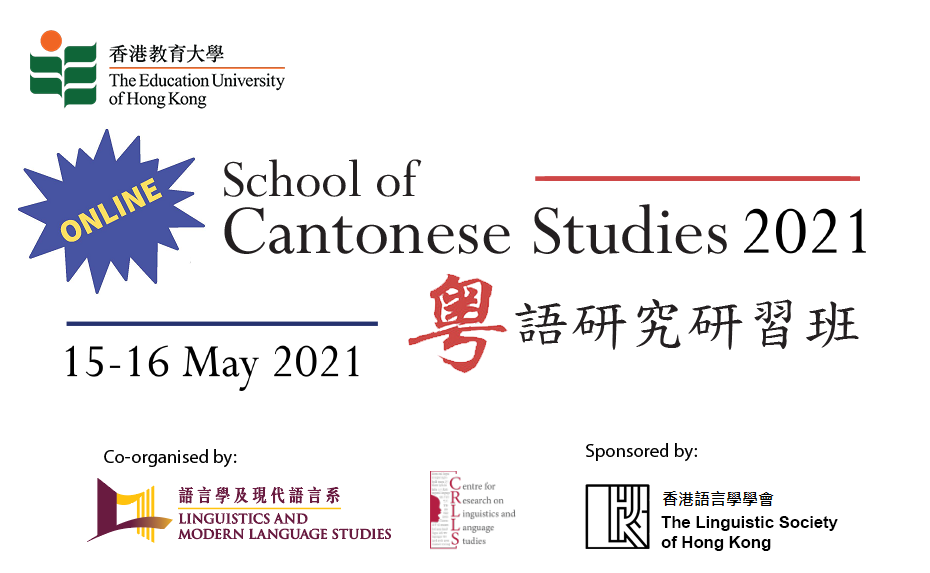Introduction
About the School 2021
The Department of Linguistics and Modern Language Studies, and the Centre for Research on Linguistics and Language Studies at The Education University of Hong Kong organized the School of Cantonese Studies from 27 to 31 May 2019.
The aims of the School are (a) to introduce recent developments and knowledge on different domains in Cantonese Studies to the participants; (b) to introduce systematic and rigorous methodologies for conducting research on Cantonese; (c) to provide a venue for scholarly exchange and interaction between scholars and participants of different backgrounds who are interested in Cantonese Studies.
The five-day event covered nine lectures delivered by twelve scholars specializing in Cantonese studies. There were 60 participants coming from different parts of the world.
The School of 2021 carries the theme "Cantonese Studies in the Digital Age". We are now living in the Information Age with a lot of data surrounding us. We need to apply appropriate methods to collect, process, interpret, and represent these data. Digital technologies play a significant role in this regard. In this two-day event, speakers of the School will introduce some up-to-date Cantonese studies involving digital technologies, such as corpus-based research, online tools and resources for Cantonese studies, and digital processing of Cantonese corpus data.
Programme*
| 15/5 AM | Some Frontiers in Cantonese Corpus-based Research Benjamin T'SOU |
|---|---|
| 15/5 PM | Linguistic Issues in Constructing Cantonese Corpora Discussants: Andy CHIN, Thomas Hun-Tak LEE, LUKE Kang Kwong, Carine YIU Moderator: CHEUNG Hin Tat |
| 16/5 AM | Digital Processing of Cantonese Corpus Data Charles LAM, LAU Chaak Ming, Jackson LEE |
| 16/5 PM | (1) Demonstration of Cantonese Digital Resources and Tools (a) Cantonese Wordnet: Luis Morgado da COSTA, Joanna Ut-Seong SIO (b) The Early Cantonese Bible Database: Shin KATAOKA (c) Rime-Cantonese and Inject-Jyutping: LAU Ming Fei (d) The 19th Century (1865-1894) Cantonese Christian Writings Database: LEUNG Wai Mun (e) words.hk《粵典》: Raymond TSE (f) Database of Early Chinese Dialects: Carine YIU (2) Demonstration of Cantonese Learning Apps (a) CanTONEse: KI Mei Ying, LAI Yik Po, YIP Ka Fai (b)《成語填字遊戲》: Benjamin T'SOU (c)《古詩粵唱粵啱Key》: ZHANG Ling |
*All talks are delivered in English supplemented with Chinese.
Speakers
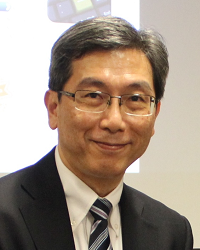
Cheung Hin Tat is Professor at the Department of Linguistics and Modern Language Studies and Director of the Centre for Research in Linguistics and Language Studies at The Education University of Hong Kong. He has been investigating a wide range of issues in developmental psycholinguistics, including grammatical acquisition, language impairment and narrative development. For promoting research in first and second language acquisition, he and his associates have constructed two corpora: Taiwan Corpus of Child Mandarin and the LTTC English Learner Corpus.
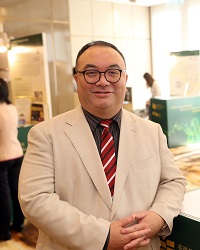
Andy Chin is Head of the Department of Linguistics and Modern Language Studies at The Education University of Hong Kong. His research interests include Cantonese studies, sociolinguistics, discourse analysis and corpus linguistics. His Corpus of Mid-20th Century Hong Kong Cantonese won the gold medal and special award at the Silicon Valley International Invention Festival in 2019.

Luis Morgado Costa is a PhD student at the Interdisciplinary Graduate School, Nanyang Technological University (NTU), Singapore. Before that, he was a research associate in the Computational Linguistics Lab, Division of Linguistics and Multilingual Studies, also at NTU. He is a member of DELPH-IN, sharing the communal commitment of open-source development of NLP tools for high quality (linguistically motivated) syntactic and semantic parsing. And also a member of the Global Wordnet Association, contributing to open-source research on computational lexical semantics. He has a broad range of research interests, including Parsing and Generation, Computational Lexicography, Computer Assisted Language Learning, Word Sense Disambiguation, Sentiment Analysis, Machine Translation, as well as general Mandarin Chinese and Japanese Linguistics.
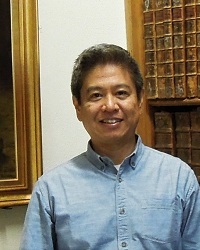
Shin Kataoka is an Assistant Professor at the Department of Linguistics and Modern Language Studies, The Education University of Hong Kong. His research interests include diachronic study of Cantonese, missionary works in Cantonese, etc. He recently constructed The Early Cantonese Bible Database (早期粵語聖經資料庫). He also co-authored many Cantonese textbooks and constructed EdUHK Cantonese Self-Learning Website (香港教育大學粵語自學平台).
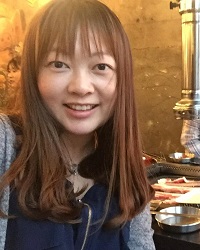
Ki Mei Ying is currently a Research Assistant at the Department of Chinese Language and Literature, The Chinese University of Hong Kong. Her research interests are Cantonese phonetics and its interface studies. She is also passionate about different areas of applied linguistics, including language teaching, language testing, and computational linguistics. She, with Lai Yik Po and Yip Ka Fai, developed CanTONEse [iOS] [Android], a mobile app for non-native speakers to learn Cantonese tones featuring application of sound-colour synaesthesia.
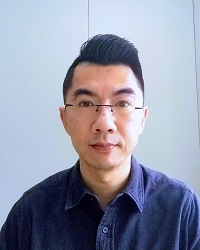
Charles Lam is Assistant Professor at the Department of English, The Hang Seng University of Hong Kong. His primary research interest is syntax-semantics interface under the generative framework. In addition, he also conducts research in digital humanities and applications of semantics.
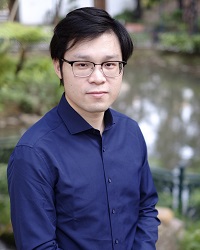
Lai Yik Po is a Post-doctoral Fellow at the Department of Linguistics and Modern Language Studies, The Education University of Hong Kong. His research interest is in Cantonese linguistics, Chinese comparative dialectology, and historical linguistics. He, with Ki Mei Ying and Yip Ka Fai, developed CanTONEse [iOS] [Android], a mobile app for non-native speakers to learn Cantonese tones featuring application of sound-colour synaesthesia.
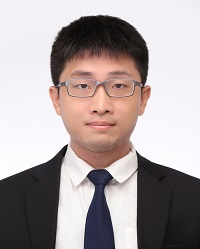
Dr Lau Chaak Ming is currently Assistant Professor at Department of Linguistics and Modern Language Studies of the Education University of Hong Kong. He is a linguist and a digital humanities practitioner, interested in both theoretical and computational linguistics. He founded 粵典(words.hk) in 2014, a dictionary project with over 500 volunteers and contains over 50,000 word entries, and is the main developer of gamification platform CantoSounds and mobile input method CantoKey.
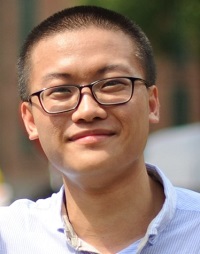
Lau Mingfei is a computational linguist and the co-founder of CanCLID. He is a main contributor of rime-cantonese input method lexicon. He is interested in corpus development and digitalization for low-resource languages.
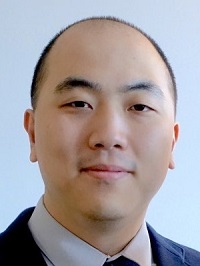
Jackson Lee works on computational linguistics. He is the author of PyCantonese, a Python library for Cantonese linguistics and natural language processing.
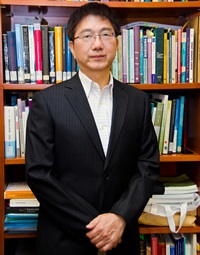
Lee Hun-Tak Thomas is Professor and Principal Researcher at the Institute of Theoretical Psycholinguistics of Tianjin Normal University and Emeritus Professor at The Department of Linguistics and Modern Languages, The Chinese University of Hong Kong. His research has centered on the acquisition of syntax and semantics, with special reference to the quantificational competence of Mandarin-speaking and Cantonese-speaking children. Along with other colleagues then based at Hong Kong Polytechnic University and University of Hong Kong (Colleen Wong and Sam Leung), Professor Lee developed The Hong Kong Cantonese Child Language Corpus (CANCORP) in the 1990s, which has an updated version made available in 2012.
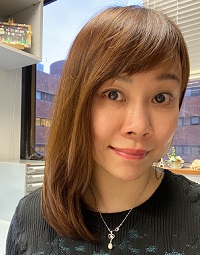
Leung Wai-mun is Assistant Professor of Applied Chinese Linguistics at The Hong Kong Polytechnic University. Her research interests include Cantonese studies, sociolinguistics, Chinese language education and the teaching of Chinese to non-Chinese speaking students. She recently constructed “The 19th Century (1865-1894) Cantonese Christian Writings Database 十九世紀中後期(1865-1894)粵語基督教典籍資料庫”. She is also the first author of the monograph Biliteracy and Trilingualism: Language Education Policy Research in Hong Kong(兩文三語:香港語文教育政策研究, CityU Press, 2020) in which a chapter is devoted to discussing Cantonese.
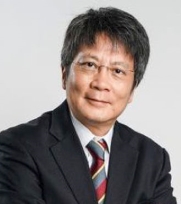
Professor Luke is NTU President’s Chair Professor of Linguistics and Chair of the School of Social Sciences at Nanyang Technological University, Singapore. He has done work on a number of areas of linguistics, including phonology, syntax, sociolinguistics and natural language understanding. The main focus of Prof. Luke's recent research is on talk and social interaction using an Ethnomethodological Conversation Analytic approach. In the 1990s, Prof. Luke developed The Hong Kong Cantonese Corpus with about 230,000 Chinese words.
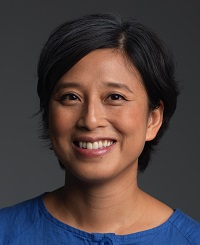
Joanna Ut-Seong Sio is Assistant Professor at the Department of Asian Studies at Palacký University Olomouc at Czech Republic. Her research interests include Chinese languages, especially in the area of syntax and semantics, as well as the use of verbal arts in the training of communication skills. She has developed the Cantonese WordNet.
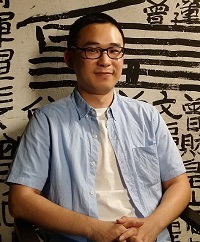
Raymond Tse is currently the chief editor of words.hk (《粵典》), a crowdsourcing-based Cantonese-Cantonese dictionary project including over 50,000 word entries. Apart from practical lexicography, he is committed to cross-sector promotion of Cantonese. In 2020, he taught an introductory workshop on phonological and lexical changes, grammar topics, tone-melody match, and the development of written Cantonese to students in Shaw College, the Chinese University of Hong Kong. Recently he reviewed Cantonese subtitles in The Way We Keep Dancing (《狂舞派3》) as invited.

Benjamin T'sou is Emeritus Chair Professor (CityUHK) and member of Académie Royale des Sciences d’Outre-Mer (Belgium). Since 1995, his team has been cultivating the Cross-language Linguistic Variations in Chinese Corpus, LIVAC.
His publications include Chinese Language and Chinese Society, Anthology on Language Contact, A Textbook on Sociolinguistics, Quantitative and Computational Studies on the Chinese Language, Linguistic Corpus and Corpus Linguistics in the Chinese Context, Quadra-syllabic Idiomatic Expressions in Cantonese: Inheritance and Innovation.
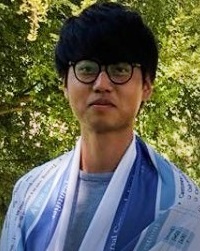
Yip Ka Fai is a PhD student in the Department of Linguistics at Yale University. His research areas are syntax and semantics with a focus on Cantonese, Mandarin, and Vietnamese. He is also interested in linguistic variations under a corpus-based approach. He, with Ki Mei Ying and Lai Yik Po, developed CanTONEse [iOS] [Android], a mobile app for non-native speakers to learn Cantonese tones featuring application of sound-colour synaesthesia.
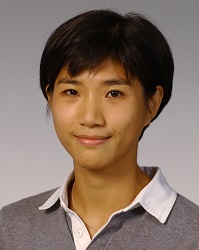
Carine Yiu is Associate Professor of Humanities at the Hong Kong University of Science and Technology. Her research interests include Chinese linguistics with a focus on Cantonese; history of Chinese dialects; syntax, semantics, typology. She has developed a number of corpora of Cantonese and other Chinese dialects: Early Cantonese Colloquial Texts: A Database, Early Cantonese Tagged Database, Database of Early Chinese Dialects.
.jpg)
Zhang Ling is Assistant Professor at the Department of Chinese Language Studies at The Education University of Hong Kong. Her research interests include Cantonese phonetics and phonology, studies of sentence-final particles, and applied linguistics. She recently developed a mobile App 《古詩粵唱粵啱Key》 to help students learn Chinese poems through singing.
Application
Date of the School
The School runs from 15 – 16 May 2021 (Saturday and Sunday). There are two sessions (morning and afternoon) in each day.
Eligibility
The School is open to those who are interested in Cantonese studies. Participants are expected to have some basic knowledge in linguistics (such as having taken courses like Introduction to Linguistics, 語言學導論, 現代漢語, or similar courses). The working language of the School is English, supplemented by Putonghua and Cantonese. Participants are also expected to have reading knowledge of Chinese.
School Fee
- School Fee: HK$200
Deadline: April 30, 2021 (Friday)
Certificate
Registered participants with full attendance at the School will receive a certificate of completion.
Application Process
To apply for the School, please fill in the application form by clicking the following link:
Application Form for the School of Cantonese Studies 2021
The application will be considered by the Organizing Committee. Successful applicants will be notified for the School fee payment.
Mode
Given the current ongoing pandemic, the School will be conducted online via Zoom.
Poster
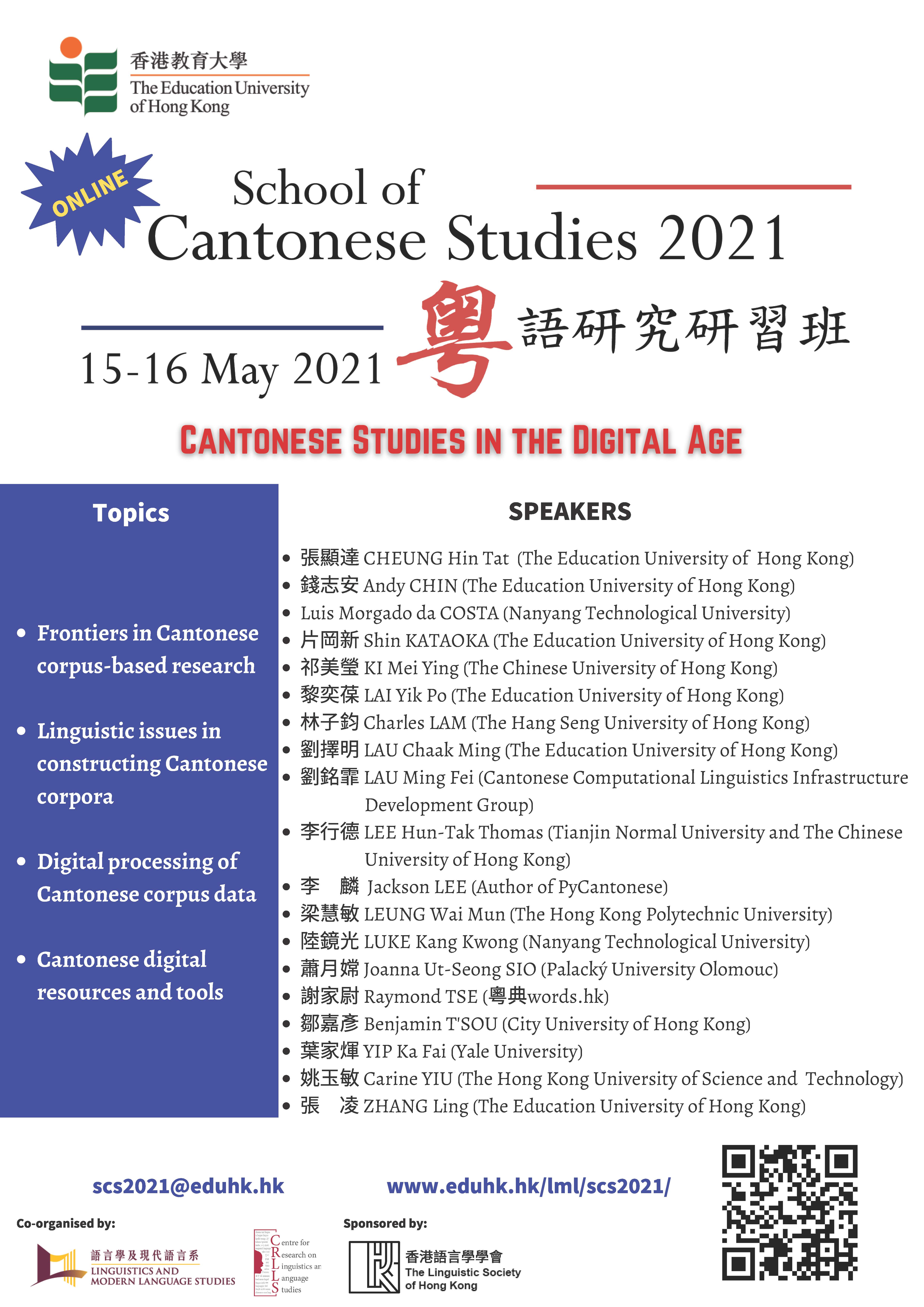
Contact Us
Enquiries
For any enquiries, please send us an email at: scs2021@eduhk.hk
Organizing Committee of The School of Cantonese Studies
Hintat Cheung
Department of Linguistics & Modern Language Studies, Centre for Research on Linguistics and Language Studies
The Education University of Hong Kong
Andy Chin
Department of Linguistics & Modern Language Studies, Centre for Research on Linguistics and Language Studies
The Education University of Hong Kong
Shin Kataoka
Department of Linguistics & Modern Language Studies, Centre for Research on Linguistics and Language Studies
The Education University of Hong Kong
Yik Po Lai
Department of Linguistics & Modern Language Studies
The Education University of Hong Kong
Chaak Ming Lau
Department of Linguistics & Modern Language Studies
The Education University of Hong Kong
Cherry Yeung
Department of Linguistics & Modern Language Studies
The Education University of Hong Kong
School of Cantonese Studies 2021. Last updated: March.
